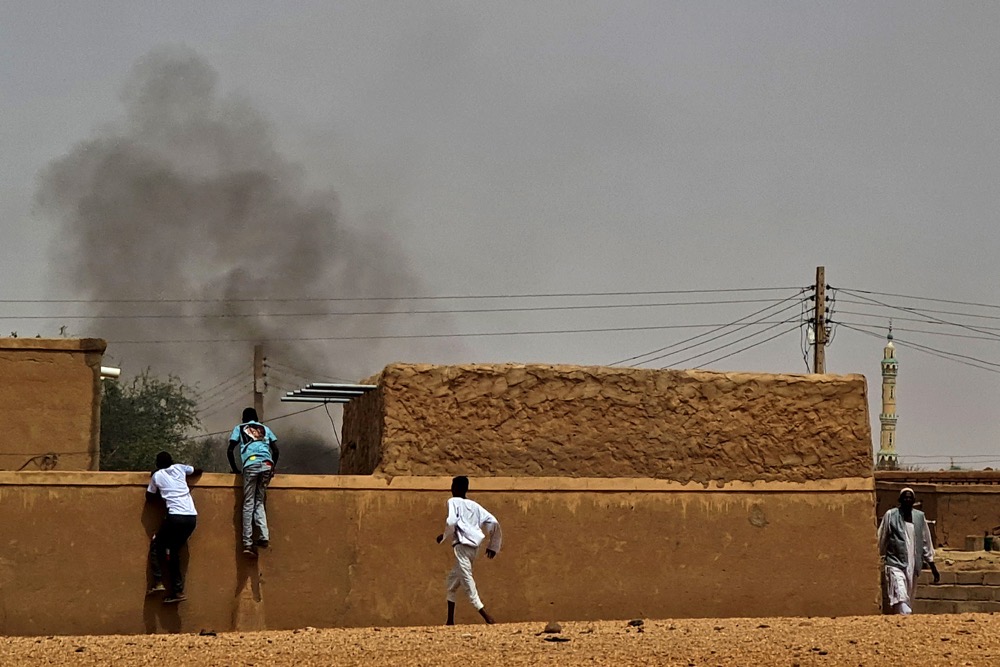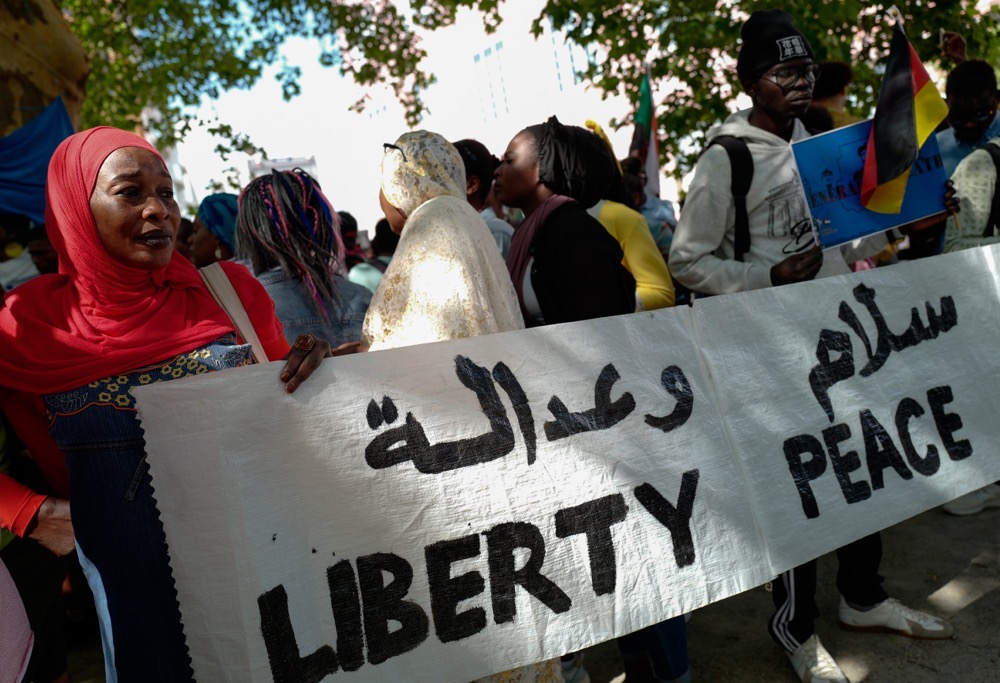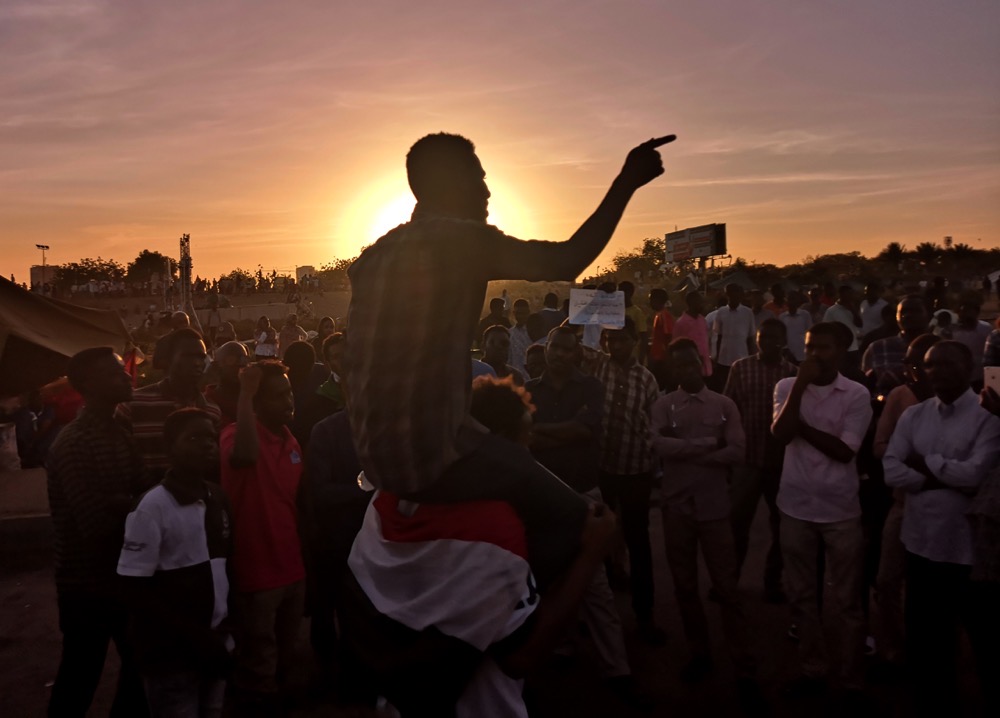JUBA: Sudan’s pro-democracy movement has faced innumerable challenges and setbacks since the Sudanese Armed Forces and the rival paramilitary Rapid Support Forces plunged the nation into a violent power struggle in April, triggering a major humanitarian emergency.
Driven by a desire for peace, representative governance and social justice, pro-democracy activists have nevertheless remained committed to Sudan’s transformation, making use of the same grassroots networks that helped overthrow long-time ruler Omar Bashir in 2019.
Hundreds of thousands of people have been displaced by the crisis, which began on April 15, including key supporters of the pro-democracy movement, which rose to prominence four years ago amid the mass, youth-led protests that compelled the military to move against Bashir.
Many of the movement’s most prominent activists have been forced to flee their homes to escape the violence, leaving behind established community networks and making it more difficult to coordinate their efforts and maintain a unified front.

Clashes between Sudanese Armed Forces and paramilitary Rapid Support Forces began on April 15. (AFP)
The violence has also diverted attention and resources away from the pro-democracy movement’s primary objectives, shifting them instead toward the demands of immediate survival, the provision of humanitarian aid, and addressing the urgent needs of displaced people.
These local efforts have been spearheaded by decentralized neighborhood groups known as resistance committees, which originally emerged in 2013 during an earlier bout of civil disobedience against the Bashir regime.
By 2019, “the resistance committees (had) became more sophisticated, developing structures, divisions of labor, and learning through experience,” Muzna Alhaj, a member of the Khartoum Resistance Committee, told Arab News.
There are now about 500 of these groups across the country, many of them working in isolation because “cooperation among the resistance committees is challenging due to the vast size of Sudan,” said Alhaj.
Despite these challenges, many have found ways to coordinate. In fact, committees in 16 out of 18 Sudanese states recently signed a “Revolutionary Charter for the Establishment of the People’s Authority” to bolster their collective impact.
Nevertheless, the overall structure of the committees has remained fluid and decentralized, with autonomy given to local groups.
“Urban areas often see more female involvement, influenced by factors such as socioeconomic class and the level of freedom for women to participate in public work,” said Alhaj.

Coordination between the committees proved extremely effective during the 2019 protests. However, they were ultimately sidelined when civilian politicians from the Forces for Freedom and Change coalition formed a transitional government alongside the military.
As a result, “a lot of Sudanese people do not believe the FFC is pro-democracy anymore,” Ghania Aldirdiri, a student and activist who recently fled to Egypt, told Arab News.
Despite significant obstacles, the resistance committees have continued to leverage their grassroots networks and organizing capabilities to address the pressing needs arising from the crisis. They have established “emergency rooms” to undertake a variety of tasks based on the specific needs and available resources in their communities, providing immediate support and aid where it is needed most.
Such initiatives have provided a much-needed stopgap response amid prolonged delays in the deployment of humanitarian teams to the country.
“The majority of humanitarian NGOs (nongovernmental organizations) have not received new Sudan visas since the conflict started,” William Carter, the Norwegian Refugee Council’s country director for Sudan, told Arab News.
The resistance committees have also taken on responsibility for the repair and reopening of damaged hospitals, the sourcing of medical supplies, and have even mobilized teams of volunteer medics to provide first-responder assistance to the injured and chronically ill.
Furthermore, they have coordinated the safe evacuation of civilians from front-line areas, repaired electrical systems to restore power to medical centers, and worked diligently to locate missing individuals and reunite them with their families.

Sudan’s ‘resistance committees,’ a loose network of neighborhood activist groups, spearheaded the protest movement in 2019 that prompted the military to move against longtime dictator Omar Bashir. (AFP)
These services are often carried out at significant personal risk. According to activists, resistance committee volunteers are frequently arrested by the forces on both sides of the conflict. Some have even been killed, while others have vanished without a trace.
Moayad Awad, a 23-year-old founding member of the Khartoum Resistance Committee, was recently arrested by the RSF in the city’s Al-Salam neighborhood.
“We haven’t heard from him since he fell into their hands,” Ahmed Ismat, another committee member, who fled to a village north of the Sudanese capital following Awad’s disappearance, told Arab News.
Sudan’s warring factions are not the only threat to the safety of volunteers. Alaa Al-Deen Mohammedin, a student engineer, suffered a fatal electric shock while helping to restore power to a health center in Darfur, for example.
Amid calls for greater international aid to Sudan, there have been proposals to channel donor funds through the resistance committees. Many argue that because of their extensive grassroots reach, the committees are best positioned to respond effectively.
“We are focused on minimizing damage to citizens (but) we have limited resources,” said Ismat.
Pro-democracy activists also believe that they ought to be playing a much greater role in peace negotiations, and highlight the lack of civilian involvement in ceasefire talks.
“We are critical of the military’s consolidation of power due to its suppression of democratic reforms,” said Alhaj. “We believe that the international community’s support for the military undermines their (championing of) democracy and justice.”

Sudanese protesters rally in the area of the military headquarters in the capital Khartoum at sunset on April 15, 2019. (AFP)
Indeed, pro-democracy activists feel let down by the international community, which chose to work with the military after it toppled the civilian-led transitional government in 2021, which ultimately resulted in the latent rivalry between Sudan’s top generals reaching boiling point.
“The international community has so far failed the Sudanese people because they had decided that the military leaders were good partners to deal with, and now we can see what it has led to,” Hamid Khalafallah, a Sudanese policy analyst, told Arab News.
He believes the international community has been wary of working with the pro-democracy movement, deeming it a potentially unpredictable ally and something of an unknown quantity.
FASTFACT
The conflict in Sudan, which has devastated its capital Khartoum and western regions, will enter its third month on July 15.
“The other thing is that they kept on saying that it’s very difficult for them, the international community, to work with the resistance committees directly because they are not very well organized, they don’t have clear leadership mechanisms,” he added.
But choosing to work with Sudan’s military leaders instead is not an acceptable alternative, said Khalafallah.
“This is a war against the Sudanese people, and regardless of whether the SAF or RSF wins it, it’s not good for anyone,” he added. “The war must end now and the military should completely go out of political life.”
Despite the climate of fear that is hindering the movement’s ability to mobilize and voice its demands openly, several resistance committees have recently issued declarations outlining their political vision in the context of the current crisis.
Activists are finding innovative ways to adapt to the circumstances and continue their struggle for a democratic Sudan, leveraging technology and social media platforms to help maintain connections and spread their message.
 They are also actively engaging with international organizations and advocacy groups to seek support and raise awareness about the situation in Sudan.
They are also actively engaging with international organizations and advocacy groups to seek support and raise awareness about the situation in Sudan.
“Our political message to the world is clear,” said Ismat. “We demand the commanders on both sides stop fighting and (we call on the international community) to toughen up the language when speaking about them.”
In an effort to address and overcome the grievances against the former regime, under which citizens felt marginalized, the pro-democracy movement has called for transitional justice, outlining the foundations for a society in which a culture of impunity is no longer tolerated.
“The democracy movement in Sudan is a reflection of our unwavering commitment to freedom and justice,” said Ismat.
“We have witnessed the devastating consequences of war and authoritarian rule, and we refuse to let our country be defined by them. Our goal is to create a Sudan where every citizen has a voice and where diversity is celebrated.”




























